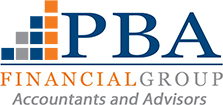The superannuation changes from 1 July
The super changes on the way from the start of the 2024-25 financial year.

.
A number of superannuation changes will come into effect from 1 July 2024 that are designed to help working Australians get more money into the retirement savings system.
If fully utilised, the changes potentially allow all super fund members, including those with a self managed super fund (SMSF), to add tens of thousands of dollars extra into their account from the start of the 2024-25 financial year.
What are the super changes?
Higher superannuation guarantee (SG) rate
The compulsory superannuation guarantee (SG) rate payable by employers to their employees will increase by 0.5% from 11% of ordinary time earnings to 11.5%. The SG rate will increase by a further 0.5% to 12% on 1 July 2025.
Increase to the concessional (before-tax) contributions cap
The concessional contributions cap, which is indexed to average weekly ordinary time earnings (AWOTE), will increase by $2,500 from $27,500 per financial year to $30,000.
Concessional contributions are taxed at a flat 15% rate and include the pre-tax super contributions paid by your employer into your super fund account as well as any personal super contributions you make, such as pre-tax contributions made through a salary sacrifice arrangement.
People with an existing salary sacrifice arrangement through their employer may want to review their current contributions level to factor in the higher contributions limit. Employees generally set their personal salary sacrifice contributions at either a fixed percentage of their salary or at a fixed dollar amount. These contributions are deducted from their pre-tax salary.
Increase to the non-concessional (after-tax) contributions cap
The annual non-concessional contributions cap that limits the amount of after-tax contributions that can be made into your super account will rise by $10,000 from $110,000 per financial year to $120,000. This level is also indexed to AWOTE.
This increase also changes the three-year bring forward limit from the current $330,000 to $360,000. This limit provides people with the opportunity to deposit up to three years of non-concessional contributions in one financial year, but then prohibits them from making any further non-concessional contributions for another three financial years.
However, those with a larger sum of money, such as from a large asset sale or inheritance, could consider depositing the maximum $110,000 annual amount allowable this financial year and a further $360,000 next financial year using the new three-year bring forward limit based on the higher non-concessional contributions cap.
Preservation age
The minimum age individuals must reach to access their super, either through an account-based pension or lump sum payments, will be 60. Amounts accessed from super are not subject to income tax.
Transfer balance cap
The transfer balance cap relates to the amount of superannuation that can be transferred from a super account to start a pension account, where the income payments and the investment returns are both generally tax free.
The transfer balance cap is indexed periodically to the consumer price index (CPI) and increased in $100,000 increments. The cap was lifted to $1.9 million at the start of the 2023 financial year, and will remain at the $1.9 million level in the 2024-25 financial year.
Amounts over $1.9 million must be retained within a superannuation accumulation account, where investment earnings are taxed at 15%.
Keep in mind that the value of assets held within a pension account can increase above the $1.9 million transfer balance cap without any penalty.
Important information and general advice warning
Vanguard Super Pty Ltd (ABN 73 643 614 386 / AFS Licence 526270) (the Trustee) is the trustee of Vanguard Super (ABN 27923449966) and the issuer of Vanguard Super products. The Trustee has contracted Vanguard Investments Australia Ltd (ABN 72 072 881 086 / AFS Licence 227263) (VIA) to provide some services to members of Vanguard Super. Any general advice is provided by VIA. The Trustee and VIA are both wholly owned subsidiaries of The Vanguard Group, Inc. (collectively, "Vanguard"). The retirement savings tips provided above are general in nature and don’t take into account your personal financial objectives, situation or needs. You should consider your objectives, financial situation or needs, and the Product Disclosure Statement (PDS) and Target Market Determination (TMD) before making any decision about Vanguard Super. The PDS and TMD can also be accessed free of charge by calling 1300 655 101. Before you make any financial decision regarding Vanguard Super, you may wish to seek professional advice from a suitably qualified adviser. Any past performance information is given for illustrative purposes only and should not be relied upon as, and is not, an indication of future performance. The information above is current as at time of publication and was prepared in good faith and we accept no liability for any errors or omissions.
Tony Kaye, Senior Personal Finance Writer
May 2024
vanguard.com.au
